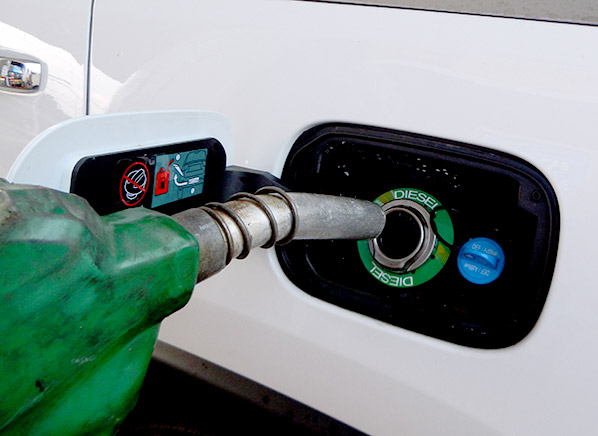

I mean, is there really a better time of year to hit the road, or in a lot of cases, off road?
We think not.
With increased Independence Day travel right around the corner, it’s worth noting diesel prices remain low – which makes long road trips a lot more promising over the holiday weekend and the remainder of the year for that matter.
According to the U.S. Energy Information Administration, the retail price of diesel fuel, which averaged $3.83/gal in 2014, is projected to fall to an average of $2.88 a gallon in 2015 before rising to $3.12 a gallon average in 2016.
So the time is now to get in those long road trips.
Unfortunately, the summer is also when demand on diesel goes through the roof, and vendors are constantly looking for ways to improve their bottom line – particularly in the down market –by accepting lesser quality fuel into their tanks.
And research has shown that contaminated diesel fuel can put your engine at risk, destroying hundreds of thousands of engines and costing truck drivers millions in recent years.
So how can you help cut back on pumping contaminated fuel that puts your injectors and other engine parts in harm’s way?
Here are a few ways you can keep contaminated fuel out of your tank and help ensure your engine is running as efficiently as possible:
- Change your fuel filter more often: a clogged fuel filter can destroy injectors and injection pumps and is one of the easiest preventative measures you can take this summer. (If you’re a Duramax driver, be sure to check out our Duramax Cat Fuel Filter Adapter, which replaces the inefficient 6 micron stock filter.)
- Drive more frequently: While road tripping more won’t help you in the short term, it’s good to keep your diesel (particularly for the lesser-used toys in your collection) running regularly to avoid sediment and gumming to form and eventually block your fuel filter.
- Pump at truck stops: Major truck stops are a good source of fuel because quality control is usually better when you have trucks with that much storage pumping fuel. In the word-of-mouth trucking industry, the last thing a station operator wants to have happen is to have a major trucking fleet get bad fuel that leads to a major issue.
- When you see a tanker filling gas station tanks, keep driving: Now, some folks suggest this is an old wives’ tail, and it could be. But when fuel is getting dumped into a gas station’s tanks at that high volume, there’s not question fuel is swirling and any contaminants are getting mixed around. In fact, I was just at a station near our shop this week that was receiving fresh tanks of gas, and this particular station actually closed down its pumps. Either way, my philosophy has always been to fuel up in the early morning or evening once the dust has a chance to settle.
Looking for more info on diesel fuel quality?
Here’s another post on some reasons why diesel fuel injectors go bad.
And feel free to share your diesel fuel stories on our Facebook Page and share your tips for avoiding bad diesel at the pump.
Good luck on the road this summer!






